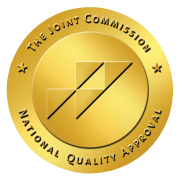Childhood Trauma and Schizophrenia: What’s the Link?
Exploring the link between childhood trauma and schizophrenia brings up multiple topics. Here, we will consider what childhood trauma may look like and how it can influence a person’s brain functioning as they get older—particularly where schizophrenia is concerned. Then we will answer the question: what now?
Describing Schizophrenia
The simplest definition of schizophrenia would be a “split mind.” But might not help much. here’s what a “split mind” could look like.
Your friend David goes to college and has always been outgoing, friendly, and gotten along with friends and family.
Bur recently, what seems like out of nowhere, he started hearing voices in his head. He became paranoid. He started thinking the professors at school are plotting together to make him fail. He even thinks people are following him around to get info on him.
These symptoms make it tough for him to know what’s real. He stops going to parties. He hermits up in his room. It’s like there’s a split in his mind, with one side experiencing the world as it is and the other side being consumed by hallucinations, delusions, and disordered thinking. This split mind makes it difficult for David to function in his everyday life.
Technically speaking schizophrenia is a chronic mental disorder that affects a person’s ability to think, feel, and behave clearly. Symptoms can include hallucinations, delusions, disordered thinking, and abnormal motor behavior.
How did this happen?
What Causes Schizophrenia?
Medical professionals are hesitant to point to a single reason a person develops schizophrenia. But some of the possible origins include genetic, brain chemistry, brain structure, and environmental causes. When looking at childhood trauma and its connection to mental health, it’s the last one we’re talking about: environmental factors.
Childhood Trauma and Schizophrenia
There are quite a few circumstances and situations that can be considered childhood trauma. But remember, trauma is personal—and even subjective to a degree. Trauma can have many faces. But, without getting into details, here are a few examples of what most would agree fall into the category of trauma in early childhood.
- Physical abuse
- Sexual abuse
- Emotional abuse (being repeatedly criticized, belittled, or ignored by a caregiver or other adult)
- Neglect (denied basic needs)
- Domestic violence (seeing it happen)
- Bullying
- Experiencing natural disasters
- Losing a parent or loved one
What’s the Link?
When a child experiences trauma, the body’s stress response system is on overdrive. It goes into action releasing stress hormones such as cortisol and adrenaline. When the stress response is activated repeatedly or over a prolonged period, it can cause changes in the brain. This might mean even reducing the size of certain parts of the brain which will change the balance of neurotransmitters. These changes could lead to difficulties with memory, learning, and emotional regulation.
It’s these changes in the brain that we would consider “caused by environmental factors.” But again, it’s not a math equation. Childhood trauma does not necessarily mean schizophrenia will develop.
That said, if both are present in a person’s history and present experience, the link should be explored and treated if possible.
How Do We Treat Childhood Trauma Induced Schizophrenia?
The first step is talking to someone. There are experts available that can help. This may include a personal doctor or someone from a mental health treatment center like Lido Wellness Center. Once that is done, the person will be advised on their next steps for treatment.
This will likely include:
Schizophrenia Medication
Antipsychotic meds (Thorazine, Prolixin, Zyprexa, etc.) help to reduce the symptoms of psychosis, such as hallucinations and delusions. Antidepressant or mood stabilizer medication may also be used to help alleviate symptoms of depression, anxiety, or other mood disorders.
Inpatient Mental Health Treatment
The next step will be therapy or mental health treatment. At Lido Wellness Center, we offer an PHP, IOP, and Outpatient model of treatment which offers a more intensive approach to treatment. But any childhood trauma schizophrenia should include these modalities:
- Cognitive-behavioral therapy (CBT): A type of therapy that helps individuals to change negative thought patterns and behaviors that may be contributing to their symptoms.
- Family therapy: Family therapy focuses on families understanding and coping with the illness. It will likely help to improve communication and reduce stress within the family.
- Group therapy: Groups allow people with schizophrenia to connect with others who are experiencing similar problems and learn from one another.
- Trauma-focused therapy: This approach can be particularly effective for individuals who have experienced childhood trauma.
It can include different forms of therapy such as Eye Movement Desensitization and Reprocessing (EMDR) and Cognitive Processing Therapy (CPT) which can help individuals process and come to terms with their traumatic experiences.
Are you looking for help with childhood trauma induced schizophrenia? Or dealing with any other aspect of trauma or mental health? Our team is available to answer your questions. We can help you understand the steps that are most appropriate for you and your unique circumstance.




